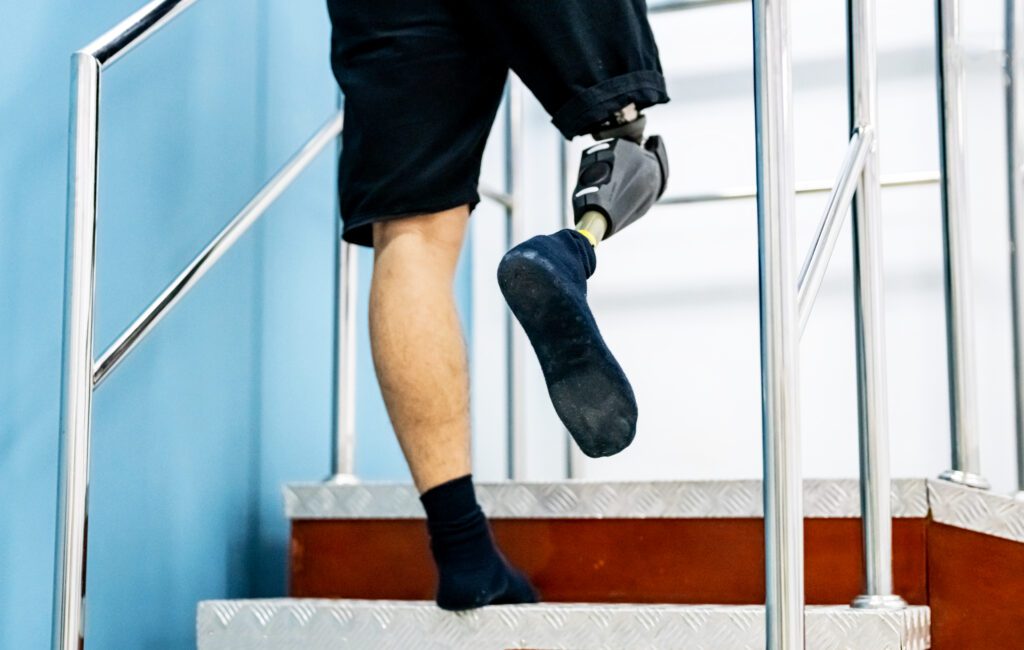In the realm of technological advancement, artificial intelligence (AI) has emerged as a powerful force for positive change, particularly in enhancing the lives of individuals with disabilities. The intersection of AI and accessibility has paved the way for groundbreaking innovations, offering new avenues for independence, communication, and inclusivity. This article delves into the multifaceted relationship between AI and disabilities, exploring the transformative impact that AI technologies have on the lives of people facing various physical and cognitive challenges.
Breaking Barriers: The Promise of Inclusive Technology
Assistive Technologies and Adaptive Devices
AI-driven assistive technologies and adaptive devices have become instrumental in breaking down barriers for individuals with disabilities. From screen readers that convert text to speech for visually impaired users to smart prosthetics that adapt to the user’s movements, AI is fostering a more inclusive digital and physical environment.
Natural Language Processing for Communication
For those with speech or communication disorders, natural language processing (NLP) applications have emerged as a beacon of hope. AI-driven communication devices leverage NLP to interpret and respond to user input, enabling individuals with conditions such as ALS or cerebral palsy to express themselves with greater ease and efficiency.
Computer Vision and Mobility
The marriage of AI and computer vision has revolutionized mobility aids for individuals with visual impairments. Smart canes equipped with sensors and cameras use AI algorithms to detect obstacles and provide real-time feedback to the user, enhancing their ability to navigate and ensuring a safer, more independent daily experience.

The Cognitive Connection: AI and Cognitive Disabilities
Personalized Learning Platforms
AI has the potential to revolutionize education for individuals with cognitive disabilities. Personalized learning platforms powered by AI algorithms can adapt content and teaching methods to cater to the unique learning styles and needs of students with conditions such as dyslexia, ADHD, or autism spectrum disorders.
Cognitive Assistance Applications
AI-driven cognitive assistance applications are designed to support individuals with memory-related challenges. These applications can provide reminders for daily tasks, help with medication management, and offer contextual cues to aid in navigating everyday life independently.
Beyond Limits: AI Enhancements for Physical Disabilities
Exoskeletons and AI-Powered Prosthetics
Exoskeletons and AI-powered prosthetics are transforming the landscape for individuals with physical disabilities. These devices use advanced AI algorithms to analyze the user’s movements, providing a seamless and natural interaction between the user and the technology. This not only enhances mobility but also contributes to the overall well-being and confidence of the user.
Brain-Computer Interfaces
The frontier of brain-computer interfaces (BCIs) holds immense promise for individuals with severe physical disabilities. BCIs, often coupled with AI, enable direct communication between the brain and external devices. This groundbreaking technology has the potential to restore communication and control for those with conditions such as locked-in syndrome.
Challenges and Ethical Considerations
While the strides made in the synergy between AI and disabilities are commendable, challenges and ethical considerations persist. Issues related to privacy, data security, and the potential misuse of AI technologies underscore the need for responsible development and implementation. Striking a balance between innovation and safeguarding the rights and dignity of individuals with disabilities remains a crucial aspect of this evolving landscape.
Looking Ahead: Future Possibilities and Collaborations
The dynamic relationship between AI and disabilities continues to evolve, opening doors to new possibilities. Collaborations between tech innovators, researchers, and the disability community are key to ensuring that AI solutions are both effective and user-centered. The future holds the promise of even more sophisticated and empathetic AI technologies that empower individuals with disabilities to lead fuller, more independent lives.
In conclusion, the fusion of AI and accessibility is a testament to the transformative power of technology in improving the lives of people with disabilities. As AI continues to advance, it is crucial to uphold a commitment to inclusivity, ethical considerations, and ongoing collaboration. The journey towards a more accessible and equitable world is fueled by the belief that technology should be a force for good, breaking down barriers and empowering every individual, regardless of ability.
